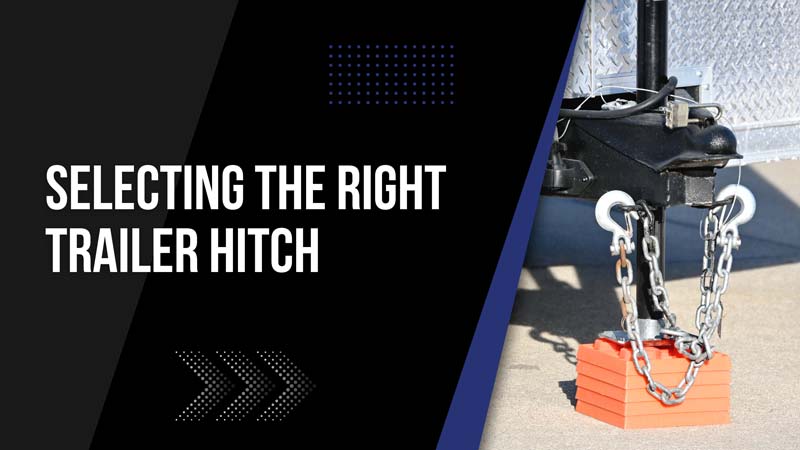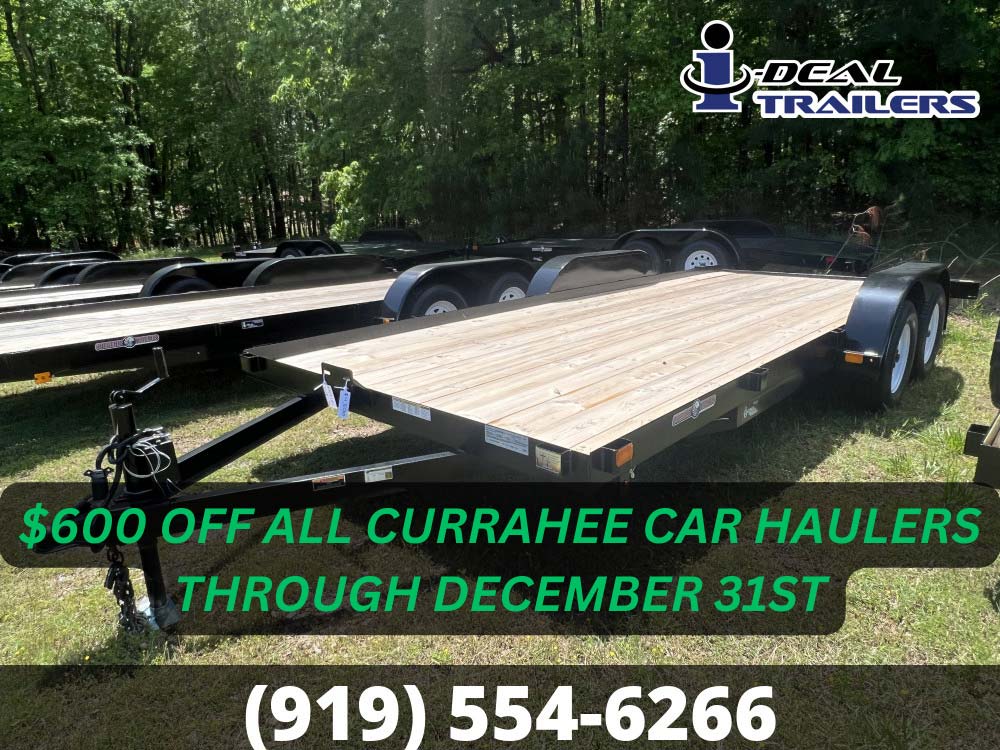
In this comprehensive guide, we will explore essential factors to consider when selecting a trailer hitch, such as your towing vehicle's capacity, the weight of your trailer and cargo, and the specific type of hitch that is most suitable for your towing needs. We will also discuss various hitch classes, their corresponding weight limits, and how they relate to different types of trailers, including utility trailers, dump trailers, equipment trailers, car haulers, and enclosed trailers, among others.
Selecting the Right Trailer Hitch: Essential Tips for Safe and Efficient Towing
Vehicle Towing Capacity: Know Your Limits
- Check Your Vehicle's Owner's Manual
Before selecting a trailer hitch, it is essential to determine your towing vehicle's towing capacity, as this will directly influence the type of hitch you can use. This information can be found in your vehicle's owner's manual and is expressed as the Gross Combined Weight Rating (GCWR). Exceeding this weight can lead to damage to the towing vehicle, the trailer, or the hitch itself, resulting in unsafe towing conditions. - Consider the Trailer Weight and Tongue Weight
When assessing your towing capacity, take into account the gross trailer weight (GTW), which is the combined weight of the trailer and its cargo. Also, consider the tongue weight (TW), which is the amount of weight the trailer imposes on the hitch itself. Ensure both the GTW and TW are within your towing vehicle's capacity to avoid issues while towing.
Hitch Types: Understanding Your Options
- Fixed Hitches: Receiver and Bumper Hitches
Receiver hitches are the most common type of hitch, mounted directly to the towing vehicle's frame. These hitches are available in a range of weight classes, sizes, and styles and work with various accessories for towing a variety of trailers. Bumper hitches, on the other hand, are mounted on the bumper and are typically only suitable for light-duty towing. - Adjustable Hitches: Weight Distribution and Gooseneck Hitches
Weight distribution hitches are designed for heavier loads and trailers with large tongue weights and use spring bars to distribute the trailer weight evenly across the towing vehicle's axles. Gooseneck hitches connect to the bed of a pickup truck and are ideal for towing heavy-duty trailers, such as horse and livestock trailers or large equipment trailers.
Hitch Classes: Matching Hitch to Vehicle and Trailer
- Light-Duty Hitches: Class I, II, III
Class I hitches have a GTW range of 1,000–2,000 pounds and can tow small trailers like bike racks, cargo carriers, and small utility trailers. Class II hitches can handle GTWs of around 3,500 pounds, making them suitable for small boats, pop-up campers, and some equipment trailers. Class III hitches can tow trailers with GTWs up to 8,000 pounds, making them ideal for midsize travel trailers, boat trailers, and some car haulers. - Heavy-Duty Hitches: Class IV, V
Class IV hitches are designed for GTWs up to 12,000 pounds and can tow larger travel trailers, boat trailers, and car haulers. Class V hitches handle even more substantial loads of up to 20,000 pounds, making them ideal for gooseneck and fifth-wheel trailers, as well as large flatbed trailers and heavy equipment.
Compatibility: Matching Hitch Components
- Ball Mount: Height and Size
When selecting a ball mount, consider the height difference between your towing vehicle and trailer to ensure a level of connection. The size of the ball mount should correspond to the trailer coupler's size, and most ball mounts are available in various sizes to accommodate different couplers. - Coupler Compatibility: Locking Mechanisms and Attachments
Ensure the hitch, ball mount, and coupler are compatible and securely connected. Locking mechanisms, safety chains, and breakaway switches are essential components to ensure a safe towing experience. Check compatibility with your towing vehicle, hitch, and trailer before purchasing these components.
Conclusion
Selecting the right trailer hitch is essential for safe, secure, and efficient towing. By understanding your vehicle's towing capacity, assessing hitch types and classes, and ensuring compatibility between hitch components, you can confidently choose the right hitch for your towing needs.
At I-Deal Trailers, our expert team is dedicated to helping you make informed decisions about trailer hitches and other towing accessories. With our guidance, you can navigate the complexities of hitch types, weight classes, and compatibility factors and ultimately select the right trailer hitch for your vehicle and trailer. Don't hesitate to contact us for any questions you may have about choosing the perfect hitch, and together we can ensure your towing experience is both safe and efficient.
About Us
Are you looking for a reliable company to buy a trailer for your next project? Look no further than I-Deal Trailers. We are a family-owned and managed business based in Wake Forest, NC. And we have everything you need in terms of trailers, whether it is a utility trailer, a dump trailer, or even a gooseneck trailer. We’ve got you covered.We also help provide financing options to our clients. You can reach us at (919) 554-6266 or fill out our contact form to learn more.

